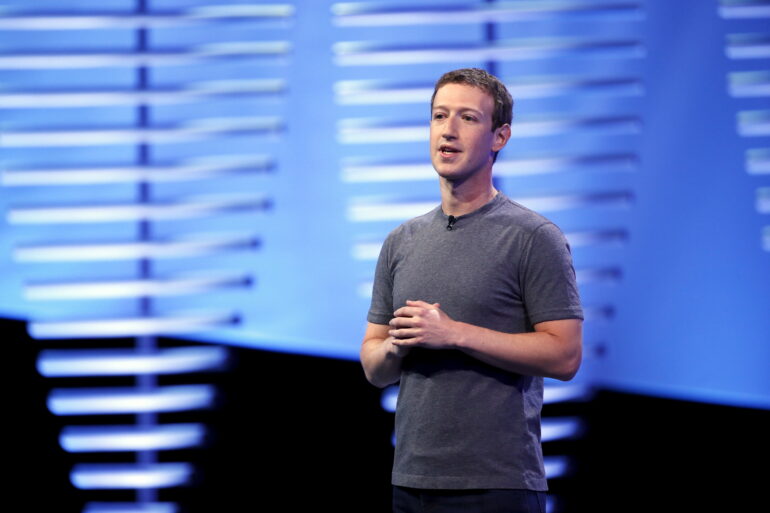TL;DR:
- Meta CEO Mark Zuckerberg envisions introducing AI agents to billions of people, aiming for usefulness and meaningfulness.
- During the earnings call, Meta reported impressive financial results, including $28.6 billion in revenue and 2 billion daily users on the Facebook app.
- Meta plans to explore chat experiences, visual creation tools, and video/multi-modal experiences in its apps like WhatsApp, Messenger, Facebook, and Instagram.
- The company is investing in AI infrastructure and expects to release generative AI products in the coming months.
- OpenAI’s ChatGPT success has sparked a race among companies like Google, Meta, and Snap to develop similar applications.
- Generative AI will have a profound impact on Meta’s products, including speeding up WhatsApp’s customer support.
- Despite Meta’s focus on AI, it remains committed to the metaverse and will launch the next Quest VR headset.
- Meta’s Reality Labs division reported a net loss of $4 billion last quarter, with expected operating losses to increase in 2023.
Main AI News:
In a recent investors’ briefing, Meta CEO Mark Zuckerberg expressed the company’s commitment to introducing AI agents to billions of people in ways that are both useful and meaningful. While details about the integration of generative AI into Meta’s apps remained vague, Zuckerberg provided the most comprehensive preview to date during the first-quarter earnings call.
Meta’s impressive financial performance, with a revenue of $28.6 billion and a record-breaking 2 billion daily users on the Facebook app, surpassed Wall Street’s expectations. However, the quarter’s profit of $5.7 billion marked a 24 percent decline compared to the previous year.
Zuckerberg shed some light on Meta’s exploration of chat experiences in WhatsApp and Messenger, as well as visual creation tools for Facebook and Instagram posts, ads, and future video and multi-modal experiences. Anticipating their broad appeal, he stated that these tools would prove valuable to regular users, creators, and businesses alike.
For instance, AI agents for business messaging and customer support are expected to generate significant interest once the experience is perfected. As Meta progresses in its endeavors, these developments will extend to their work on the metaverse, allowing users to effortlessly create avatars, objects, worlds, and code to interconnect them.
Initially, Meta faced challenges in building the necessary infrastructure to support AI features due to the distraction caused by the company’s rebranding and Zuckerberg’s focus on the metaverse. Consequently, billions of dollars were allocated to overhauling its data centers in recent quarters. However, Zuckerberg assured investors that Meta was no longer lagging behind in this regard and teased the upcoming release of generative AI products in the following months.
The extraordinary success of OpenAI’s ChatGPT has propelled generative AI into the forefront of the tech industry, prompting companies like Google, Meta, and even smaller players like Snap to race against time in developing competing applications. While Meta previously provided researchers with an AI language model called LLaMA, it has yet to introduce a widely accessible counterpart to ChatGPT.
However, it appears that this will change in the near future. Zuckerberg declared that generative AI would revolutionize every single one of Meta’s products and alluded to its potential to accelerate the growth of WhatsApp’s emerging customer support business. Enabling millions of AI agents to act on behalf of businesses will result in a significant increase in chat engagements, revolutionizing the landscape of customer support.
Despite Meta’s pivot towards AI, Zuckerberg emphasized that the company remains committed to the metaverse. He dismissed claims that Meta is moving away from this concept, citing the planned launch of the next Quest VR headset later this year as evidence. Although Meta’s Reality Labs division reported a net loss of $4 billion in the previous quarter, the company foresees an increase in operating losses in 2023.
Meta’s vision for the future is clear: seamless integration of generative AI across its vast range of products and a simultaneous focus on advancing the metaverse. With the upcoming release of generative AI products and the continuous development of the next Quest VR headset, Meta is set to redefine user experiences and solidify its position as a leader in the tech industry.
Conlcusion:
The integration of generative AI by Meta and the increasing focus on AI technology by other industry players indicate a significant shift and growing competition in the market. Meta’s ambitious plans to introduce AI agents across its platforms, along with their impressive user base and financial performance, position them as key players in the evolving landscape. The race among companies to develop generative AI applications highlights the recognition of its potential and the drive to capitalize on this tech trend.
As the market embraces these advancements, businesses will need to adapt and leverage AI capabilities to stay competitive and meet the evolving demands of their customers. The future of customer support, visual creation tools, and the metaverse will be shaped by these developments, creating opportunities and challenges for companies seeking to leverage AI in meaningful and valuable ways.

